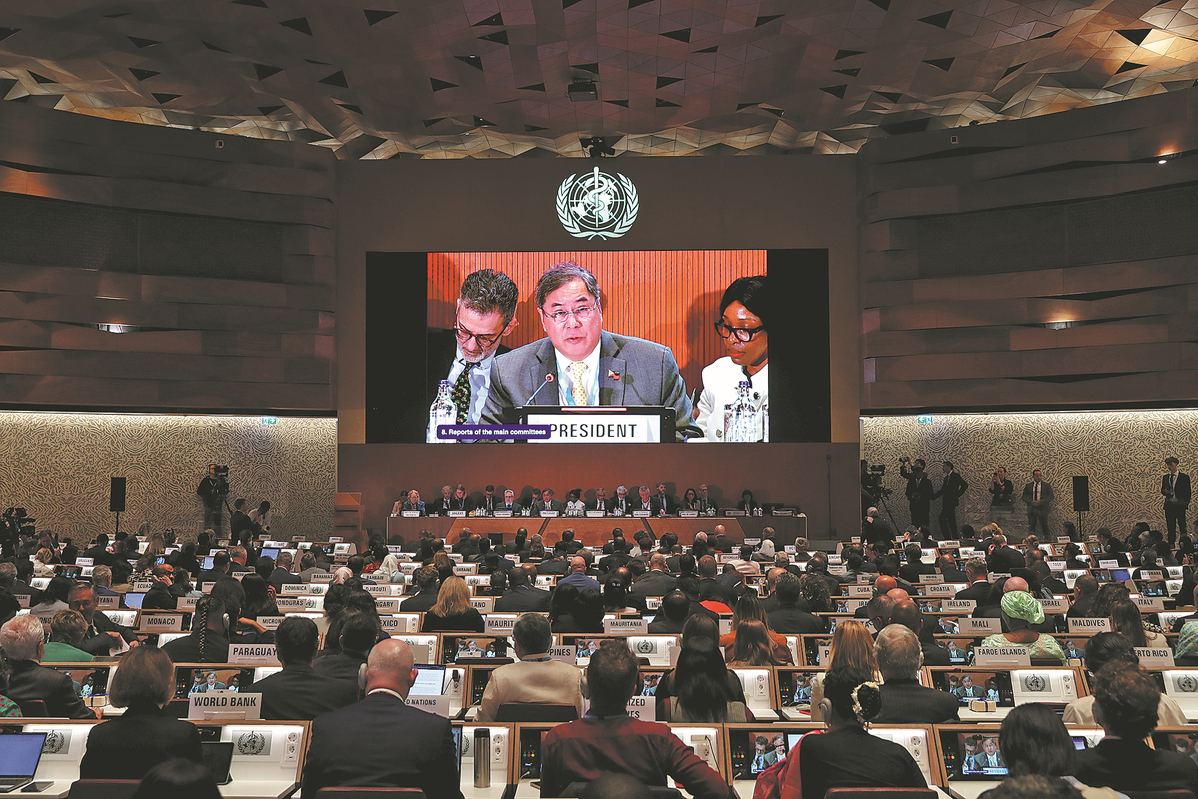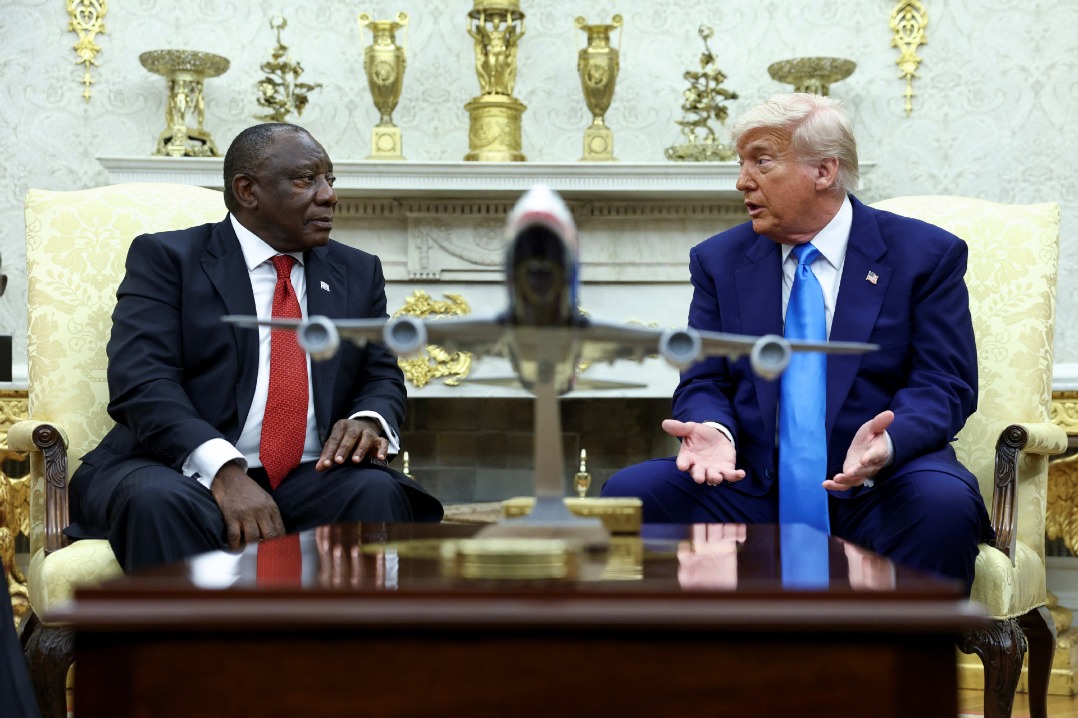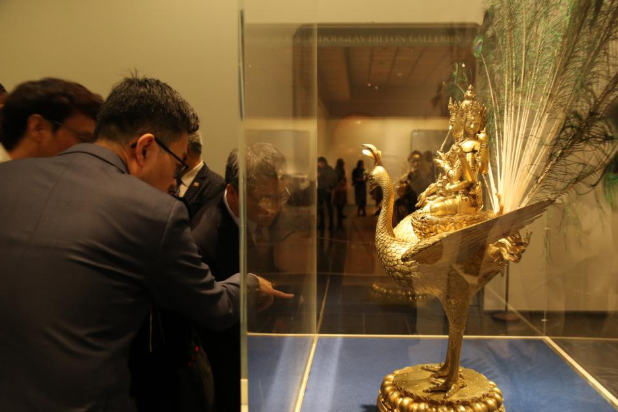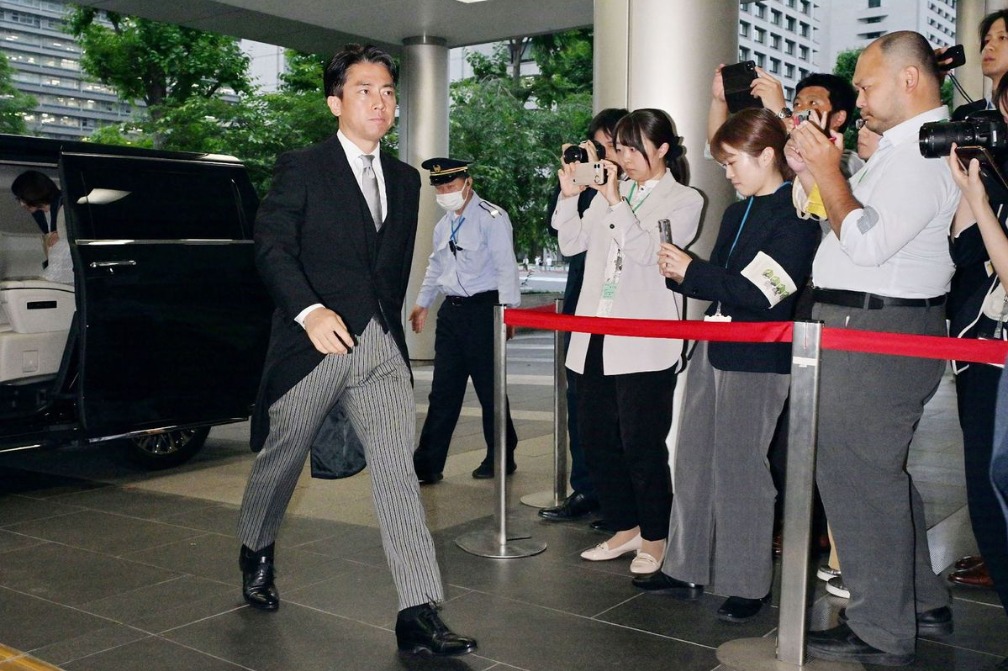WHO adopts historic pact on pandemic
China's role lauded for helping boost global capacity for prevention, response


China has actively participated in the negotiations of a global pandemic agreement and has advocated multilateralism, unity, and cooperation among nations, said an official from China's delegation to the 78th World Health Assembly.
The WHO Pandemic Agreement, after three years of intensive negotiation among WHO member states, was formally adopted on Tuesday in Geneva at the plenary session of the assembly.
Hu Guang, who is in charge of health emergency response at China's National Disease Control and Prevention Administration, and who was deeply involved in the drafting and negotiations of the agreement, told China Daily on Tuesday: "Guided by the vision of building a global community of health for all proposed by Chinese President Xi Jinping, China has practiced true multilateralism and has advocated for strengthening solidarity and cooperation among nations during the talks.
"It has supported the WHO in playing a central coordination role in order to jointly improve the global health governance system and boost worldwide capacities for prevention, precaution and response."
On issues such as pandemic prevention and surveillance, China has maintained a scientific approach, put forward reasonable amendments to the text, and played an active role in drafting relevant provisions, he said.
He noted that, thanks to China's efforts, parties agreed to focus the scope of surveillance on newly emerging and reemerging infectious diseases with pandemic potential, as well as clarify the scope of institutions for information sharing.
"In addition, together with Brazil, Indonesia, Bangladesh and other countries, within the framework of 'Friends of Fairness', China actively responds to the reasonable demands of developing countries for fair access to health products, demonstrating its role as a responsible major country," he added.
Described as a "watershed" agreement and the first of its kind, the treaty was designed to address gaps and inequities in preventing, preparing for, and responding to pandemics, the WHO said in a news release.
The treaty is only the second international legal agreement negotiated and agreed in the history of the WHO, the first being the WHO Framework Convention on Tobacco Control, the organization said.
Key elements
Key elements include the rapid sharing of data about new diseases, the distribution of medical resources to the WHO in the event of a future outbreak, and the transfer of health technologies to poorer nations.
WHO Director-General Tedros Adhanom Ghebreyesus told the assembly on Tuesday that the pact "will rank among the most significant achievements in the history of this organization, and of global health".
"Today, you have sent a loud message that multilateralism not only works, but is the only way to find shared solutions to shared threats," he said.
Teodoro Herbosa, secretary of the Philippines Department of Health, and president of this year's World Health Assembly, said: "Now that the agreement has been brought to life, we must all act with the same urgency to implement its critical elements, including systems to ensure equitable access to lifesaving pandemic-related health products."
Before the treaty can be opened for signature, considered for ratification — including by national legislative bodies — and finally enter into force, there are still issues that remain unsolved, notably the pathogen access and benefit-sharing system in the annex.
The system will address how countries — especially underdeveloped ones — could benefit from sharing pathogens with pandemic potential, particularly in exchange for pharmaceutical products, if such are developed by drugmakers.
The result of the negotiation will be considered at next year's assembly.

































